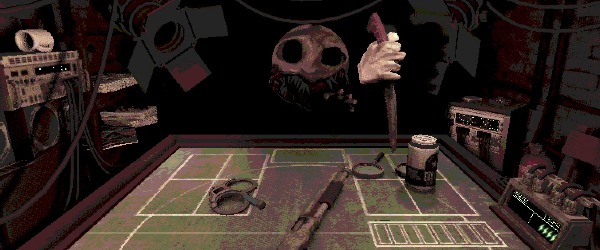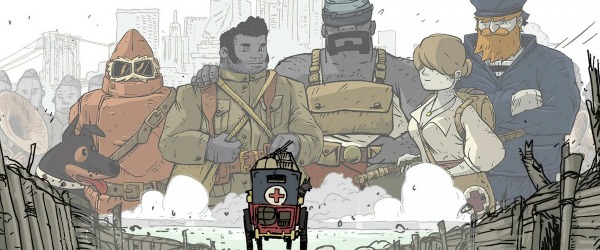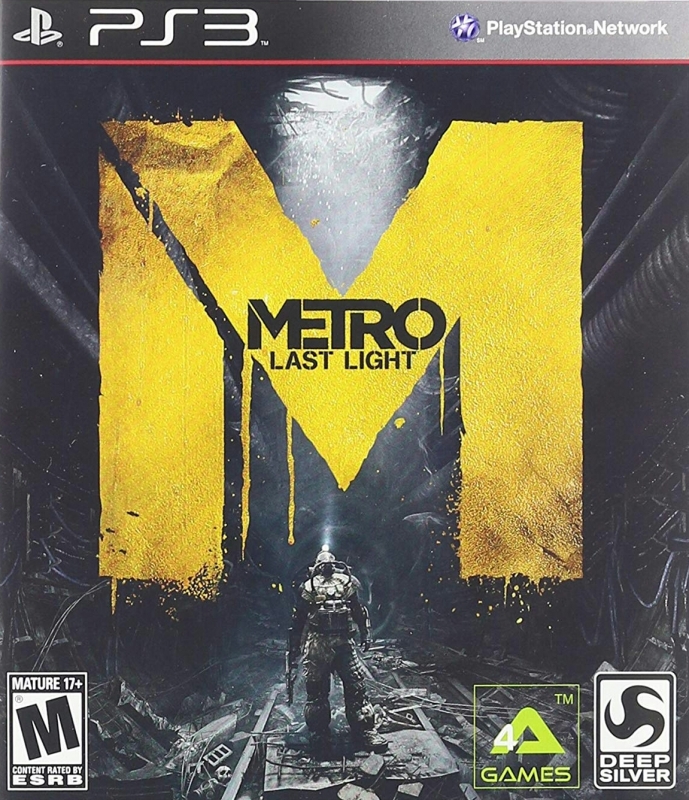
Metro: Last Light - Review
by Joseph Trotter , posted on 17 June 2013 / 5,128 ViewsWhen pitching video game ideas to a publisher, one based on a conversion of a Russian sci-fi novel based in the post-apocalyptic tunnels of the Moscow Metro is perhaps not the most obvious of sellable material. When Metro 2033 did arrive in 2010, based on the terrific Dmitry Glukhovsky novel of the same name, it swiftly attained a strong cult following due to its twisting narrative and foreboding atmosphere, but was hampered by a poor engine and often woeful combat mechanics. Enough interest was shown in the series for a sequel to be commissioned by the then publisher THQ, but after their demise earlier this year the rights were purchased by Deep Silver with only a few months delay before release.
Although a sequel to the Metro 2033 book does exist (Metro 2034), Metro: Last Light bares no resemblance to this tome and instead features an original narrative exclusive to the game. Last Light picks up the narrative strand of 2033 one year after its conclusion, and begins with a reflection on the impact of the original's 'normal ending' (there is no Mass Effect style choices-consequences system here). Artyom, now a ranger occupying the pivotal D6 military facility, is informed that a Dark One has been found alive near the station and it is his job to destroy the creature. Our hero, internally conflicted by his almost complete genocide, sets out to investigate the sighting with plans other than destruction for the creature. What follows is a morally ambiguous game of cat and mouse through the dingy Metro and dangerous Overground, taking in the Nazi Reich, Communist Red Line and disparate groups in between the extremes. Rightly or wrongly, each group is attempting to recover humanity through its own methods and ideology; as Artyom notes, whether they destroy the rest of the world does not matter, for the only world they know is that of the Metro. War is coming to the Metro, and the motions are set.
These greater themes are presented to Artyom in a microcosmic style, introducing and explaining wider events through the people he meets, the conversations he hears and the scenarios he participates in. This works on a certain level, and is understandable within the wider context of the series (Artyom is but an individual dragged by greater forces), but it does at times force the narrative into uncomfortable moments; minor events are given great build-up, while monumental, game-changing instances are swept away with little comprehension, explained in notes are off-hand comments.
Last Light's strong narrative is well supported by the linear style of play. In a generation where linearity is seen as a wall preventing the player's natural ability to make choices within a game, it is refreshing that linear titles like Last Light and BioShock: Infinite can guide and thrill a player by removing choice and open-world 'freedom' and replacing it with refined, exhilarating set-pieces and narrative. One does not read The Great Gatsby and question the choices made by the author narratively, wishing to create a different path, or novel, so why is it expected of video games to remove the expert story-teller and allow gamers to fritter willy-nilly?
Linearity is at once a design choice but also a necessity for the environment of the Metro; this is a dark, dank world, restrictive in movement and direction. The atmosphere created by this claustrophobia, the constant sense of danger coupled with outposts of humanity is probably Last Light's finest attribute. Foreboding and intense, at once horrifying and hopeful, the player is gripped and engulfed by the darkness before being enriched and enthralled by the tender humanity that sprouts in the dark. Almost, almost, the game shoots itself in the foot with the incessant darkness and bleakness; Last Light is so consistently dark and dangerous that when the worst moments of humanity strike, the player is almost saturated to the point it barely registers. This is saved by that rarest of things in gaming - genuine humanity. As the Reich measure people's heads and the Soviets check their height, you feel for the desperation of those flung between a rock and a hard place. In the Theatre station, the famous Moscow Theatre is carried on by a small, hopeful cabaret show. Children cry, adults weep, but they just get on with things. In the Metro, everyone is an outcast, but some are more outcast than others.
All that considered, one could assume that we are discussing Pasolini's Oedipus Rex and not a video game. As a sequel, Last Light improves on the gameplay of 2033 in nearly every respect. Gone is the loose engine and unpredictable gunplay, replaced by a highly polished, smooth and consistent engine that handles every situation in style. There are no lost bullets here; lead slugs into flesh with satisfying aplomb, and any missed shot is due to your own wonky aim, and not the fallibility of the engine. Although the game could be accused of being slightly easy on normal mode, the other interpretation is that it has a well-tuned learning curve, training and improving the player as the enemies get harder. Understandably, the weapon selection is restrictive due to the sparse nature of apocalyptic life, but they are still satisfying and clunky in combat.
At its heart, Last Light is a stealth game reliant on sleuth and patience to make it through the Metro. Light indicators show your visibility, while the lack of ammunition resolves the player to silent, lethal or non-lethal take-downs on the enemy. These enemies, in particular humans, unfortunately lack the humanity of their station counter-parts. For the most part they are blazing idiots, walking into fire, missing bodies they are stood on and failing to do their job with any sort of realism. For such a generally well-considered game, this is a huge oversight that can somewhat blight the otherwise consistent impression of a genuinely dangerous world.
The extra funding sourced for Last Light as opposed to 2033 has made a huge improvement in the visual impact of the title. Make no mistake, Last Light is stunningly detailed; light flickers off every object, central characters are convincing and environments suitably stretching. Although the game world can appear to lack variety, it certainly looks the part. When the world opens up in non-combat zones, the superb light-engine dazzles in depth and detail. These atmospheric details are enforced by a suitably sombre score and superb voice acting, which both add an immediacy to the action which would be lacking in a game lacking the spit and polish that has so clearly been adorned to Last Light.
Last Light improves on the original in almost every way, but in doing so it perhaps lacks the surprise factor and raw potential of 2033. It polishes and focuses the game experience of 2033, but the inconsistencies of the narrative and flaws of the microcosmic style perhaps make it less of a reflection on the Metro series than 2033 is. Certainly, the narrative is still stronger than most of its competitors. Maybe it does feature stupid enemies, but this is only highlighted because of the polish given to most other aspects of Last Light. What is undeniable is that Metro: Last Light is an enjoyable and foreboding romp from start to finish, steeped in atmosphere and style. Although it may suffer from not being able to draw on the same material as 2033, it makes up for this in almost every other aspect. If only every sequel realised the potential of the original in this way.
This review is based on a PlayStation 3 review copy of Metro: Last Light, provided by the publisher.
VGChartz Verdict
8.6
Great


























